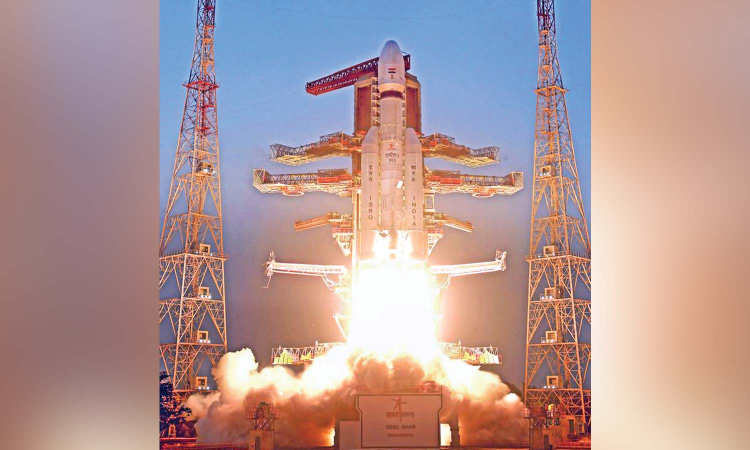Leap for commercial space: ISRO gears up to launch first private-made rocket in January
Reports indicate that the rocket would carry the Indo-Mauritius Joint Satellite, an advanced Earth-observation satellite that would aid in maritime surveillance, environmental monitoring, disaster management, and coastal studies

New Space India Ltd, the commercial arm of ISRO, has signed an agreement with HAL and L&T to make the launch vehicle
CHENNAI: The Indian Space Research Organisation is gearing up for the PSLV- N1 mission in January 2026, a launch that will be a milestone in the commercialisation and industrialisation of launch vehicle production.
This will be the first launch vehicle fully manufactured under the deal that the New Space India Limited (NSIL), the commercial arm of the space agency, signed with Hindustan Aeronautics Limited and Larsen & Toubro on September 5, 2022 during the Bengaluru Space Expo.
As per the agreement to make five rockets, the remaining four vehicles will be rolled out at six-month intervals. This enables the private industry to be part of the end-to-end manufacture of the ISRO’s workhorse launcher.
Commenting on this, officials said this partnership would not only strengthen India’s domestic aerospace ecosystem and boost private sector participation, it would also reduce ISRO’s operational load, allowing its scientists to focus more on research, innovation, and deep-space exploration.
Reports indicate that the rocket would carry the Indo-Mauritius Joint Satellite, an advanced Earth-observation satellite that would aid in maritime surveillance, environmental monitoring, disaster management, and coastal studies.
S Pandian, retired senior space scientist and former director of ISRO’s primary space port, Satish Dhawan Space Centre in Sriharikota, told DT Next, “The PSLV is our workhorse and its full-scale production by HAL is a major milestone. We provided the blueprint of the rocket’s fuel tank, and HAL, with over 50 years of experience, will manufacture and supply fuel tanks for both PSLV and GSLV.”
He added that the world will require nearly 30,000 satellites by 2030 and noted how India currently has 230 registered space-sector companies. “There is huge demand, and India will play a vital role in low-cost launch services. India is already strong in satellite data processing and may become the global hub in the future,” Pandian opined.
The PSLV-N1 mission holds significance in the global commercial launch market, where companies like SpaceX and Arianespace dominate. India aims to increase its share by offering reliable and cost-effective alternatives.



